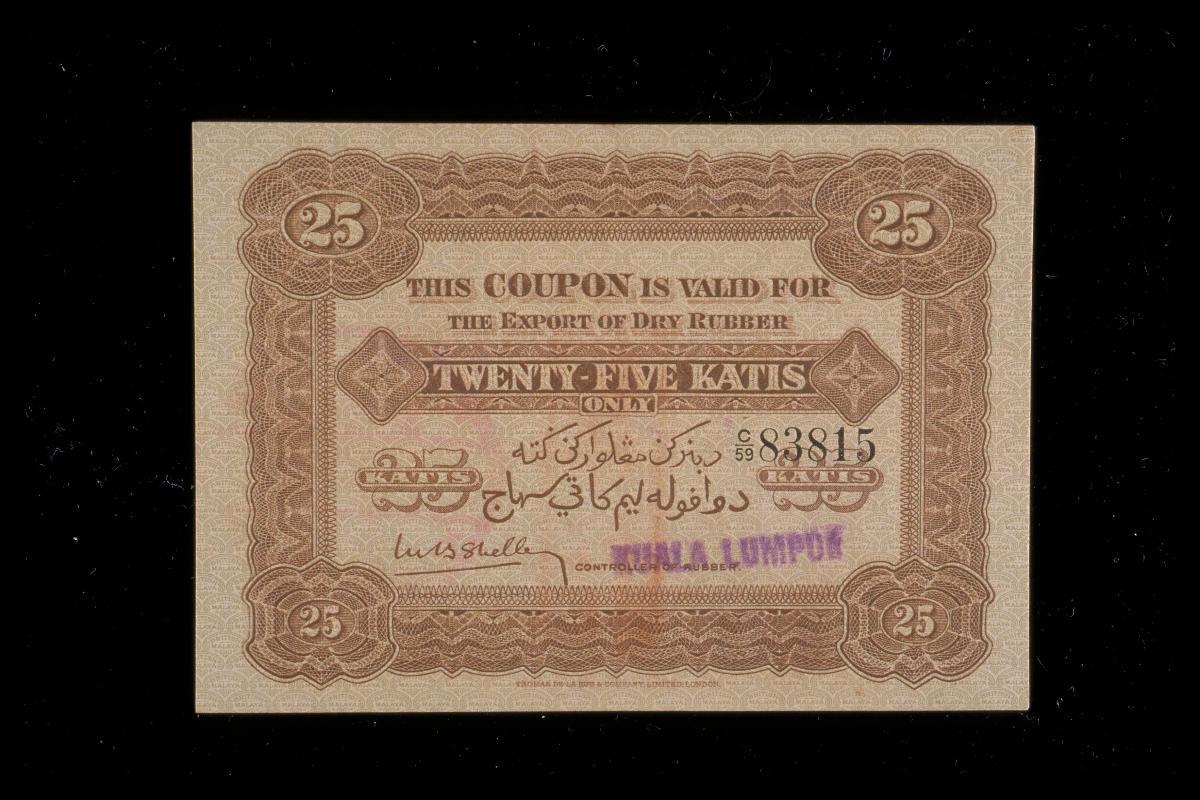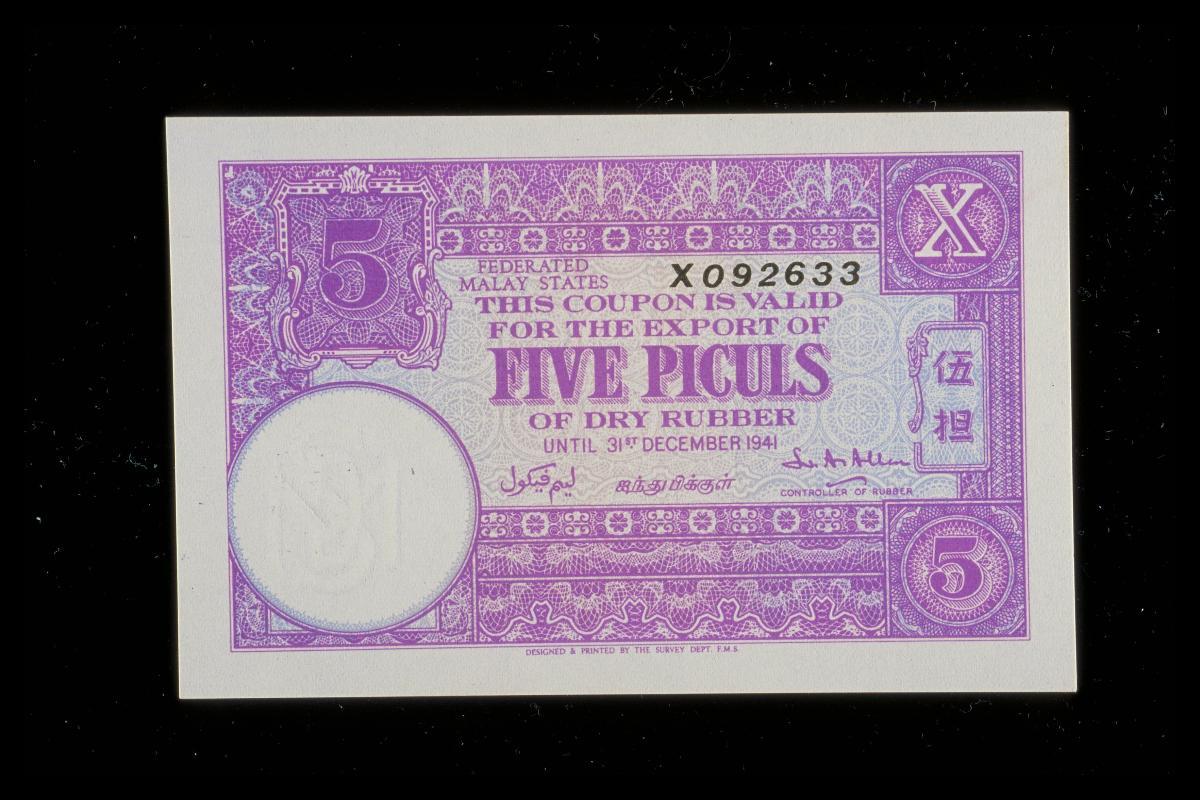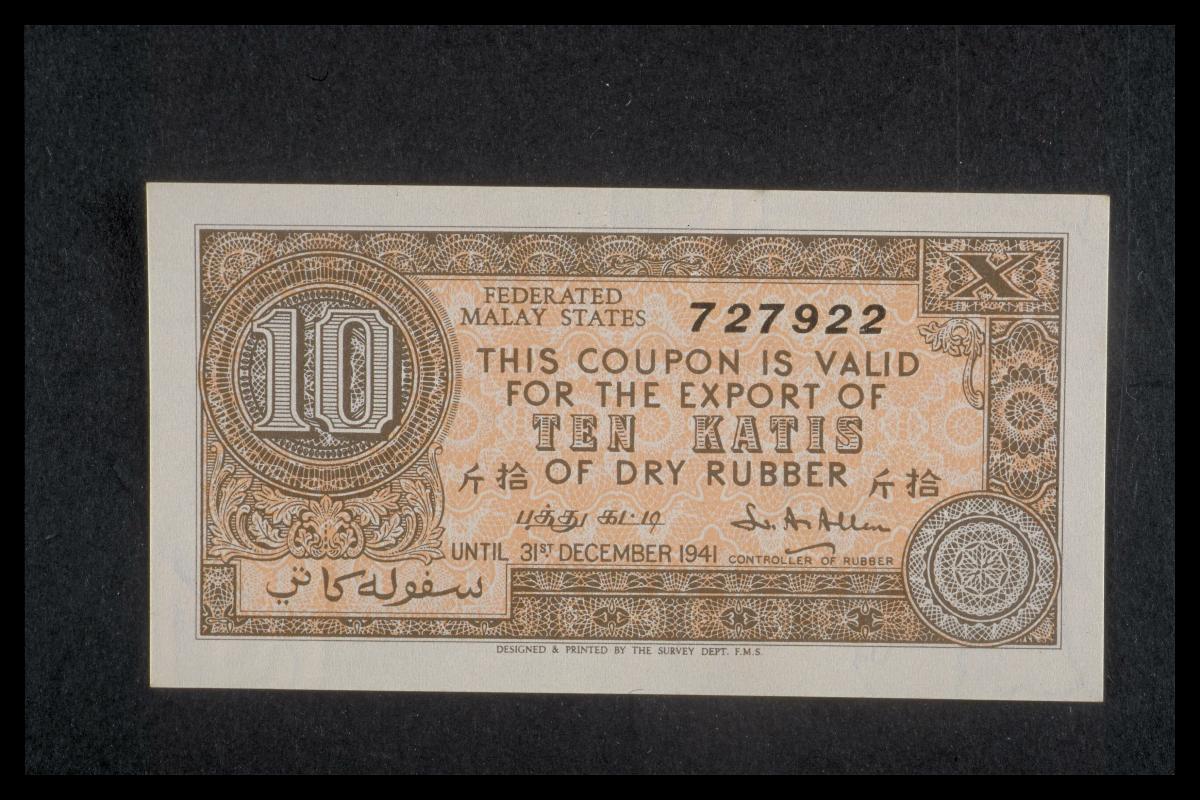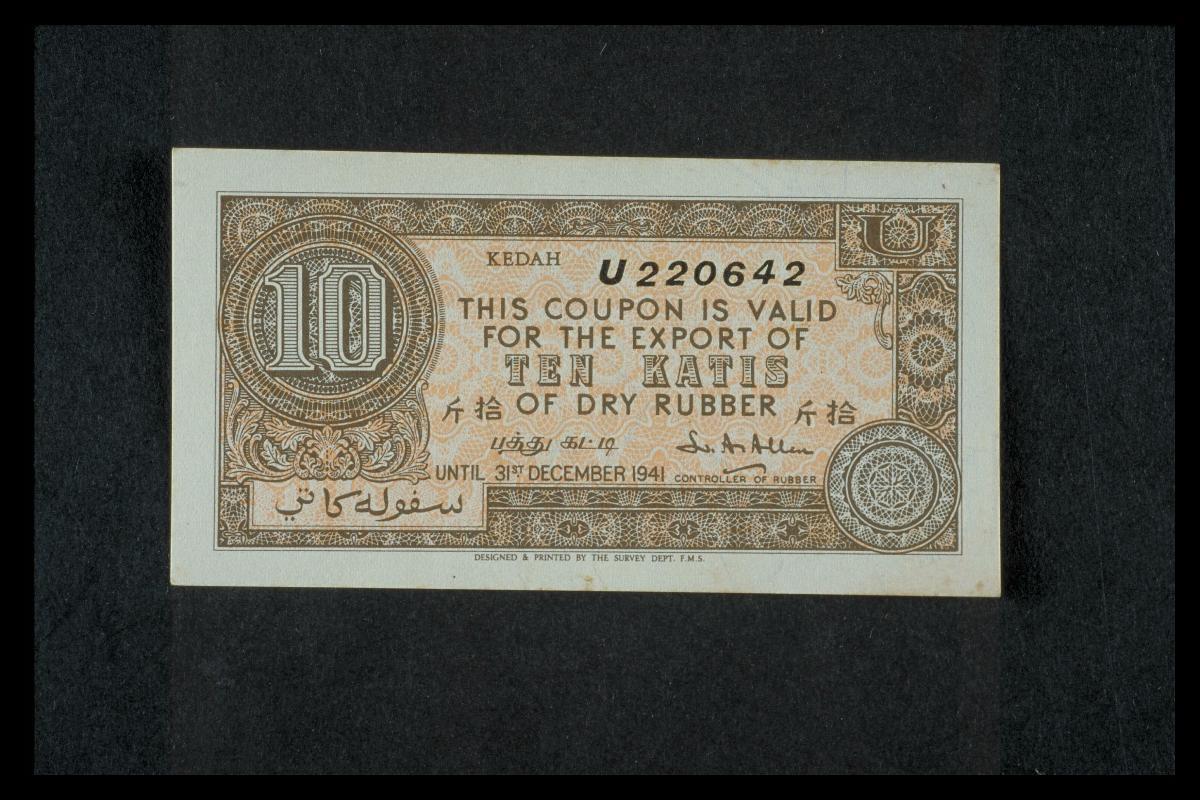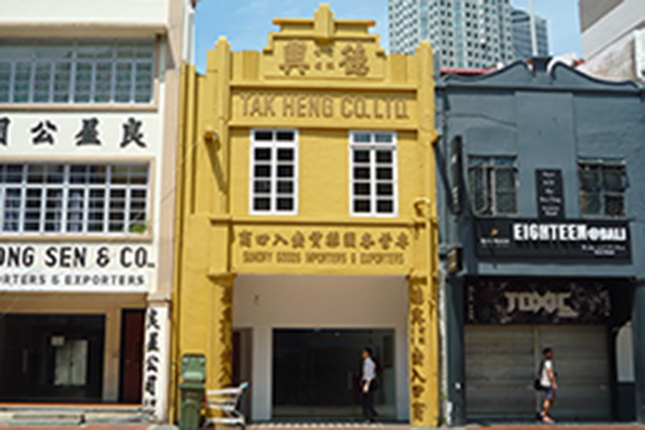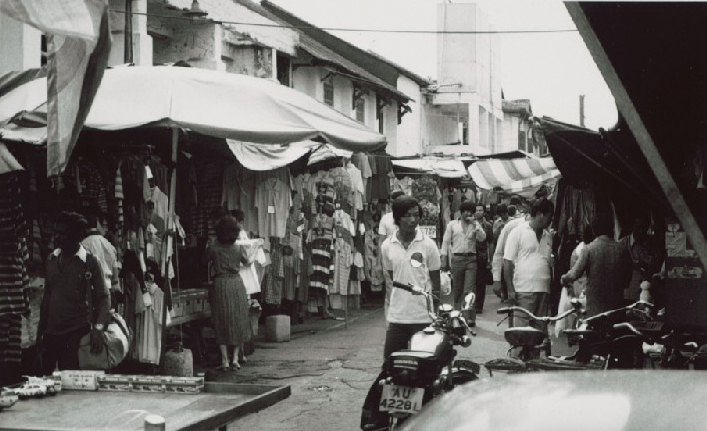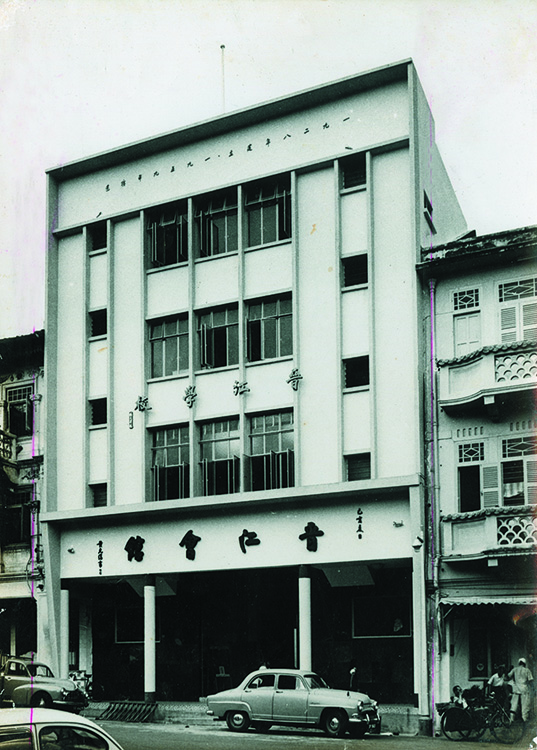During the Great Depression, the price of rubber in Southeast Asia fell drastically due to overproduction. In order to protect the rubber industry (or more specifically, to protect the European rubber companies against native rubber owners) in Malaya, Borneo and the East Indies, the British and Dutch imposed restrictions on the export of rubber. From 1922 to 1941, the British issued coupons to native rubber owners in Malaya and the Federated Malay States. These coupons gave the owners the right to export a certain percentage of their total rubber production (coupons reflected the specific quantity, ranging from katis to piculs). Very quickly, forged coupons flooded the market and in desperation, the Federal Government commissioned Thomas De La Rue, an expert in producing banknotes and postage stamps, to produce the coupons. This, unfortunately, did not produce the desired outcome and forged coupons remained on the market.




